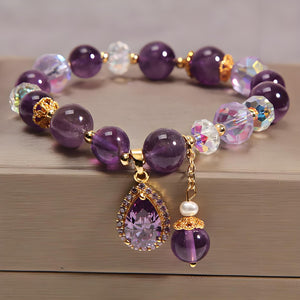Introduction
Have you ever wondered about the deeper meaning of the elements in Chinese philosophy? If so, you're in for an enlightening journey! Today, we're diving into Fire (火, Huo) in Wuxing, the Five Elements theory, to uncover its transformative power and influence on various aspects of life.
Understanding Wuxing (The Five Elements)
Definition and Background
Wuxing, or the Five Elements theory, is a cornerstone of Chinese philosophy. It describes the dynamic interactions and relationships between five elements: Wood, Fire, Earth, Metal, and Water. These elements are not just physical substances but also represent fundamental energies that influence the natural world and human life.
The Five Elements
Each element in Wuxing has unique characteristics and associations:
- Wood (木, Mu): Growth and expansion.
- Fire (火, Huo): Transformation and activity.
- Earth (土, Tu): Stability and nourishment.
- Metal (金, Jin): Structure and contraction.
- Water (水, Shui): Flow and adaptability.
Characteristics of Fire (火, Huo)
Symbolism and Meaning
Fire symbolizes transformation, heat, and light. It represents the energy of activity and change, often associated with passion, creativity, and enthusiasm. In Wuxing, Fire is the force that drives transformation and brings about new beginnings.
Season and Direction
Fire is linked to summer and the South. Just as summer is the peak of the year's warmth and activity, Fire represents the height of energy and transformation.
Color and Taste
Red is the color of Fire, symbolizing vitality and excitement. The taste associated with Fire is bitter, which is thought to have a purifying effect on the body.
Symbolism of Fire in Chinese Philosophy
Transformation and Energy
Fire is all about change. It's the energy that turns potential into action and ideas into reality. Think of it as the spark that ignites your inner drive. Just as a fire transforms wood into ash, Fire in Wuxing represents the transformative processes in life.
Spiritual Significance
Spiritually, Fire is linked to enlightenment and awakening. It's the element that fuels our spiritual journey, helping us see beyond the mundane and connect with higher truths.
Yin and Yang Balance
In Wuxing, balance is key. Fire is a Yang element, representing activity and expansion. It needs to be balanced with Yin elements to prevent burnout and maintain harmony. This dynamic balance is crucial for overall wellbeing.
Fire's Impact on Health
Physical Health
In Traditional Chinese Medicine (TCM), Fire is associated with the heart and small intestine. It's believed that a balanced Fire element can promote cardiovascular health and aid in digestion. However, an excess of Fire can lead to symptoms like insomnia, palpitations, and anxiety.
Emotional Health
Emotionally, Fire governs joy and excitement. A balanced Fire element brings about enthusiasm and a zest for life. But too much Fire can lead to restlessness and impulsivity. It's essential to keep this element in check to maintain emotional equilibrium.
Balancing Fire
Balancing Fire involves lifestyle choices and practices. Eating foods that cool the body, like cucumber and watermelon, can help. Practices like acupuncture and qigong also work to harmonize Fire energy. Personally, I find that spending time in nature, especially near water, helps cool my internal Fire and restore balance.
Fire's Influence on Personality and Behavior
Fire Personality Traits
People with a dominant Fire element are often passionate, dynamic, and enthusiastic. They are natural leaders and tend to be very social and charismatic.
Strengths and Weaknesses
The strengths of a Fire personality include creativity, leadership, and the ability to inspire others. However, the same fiery nature can also lead to impulsiveness, restlessness, and a tendency to burn out if not properly managed.
Nurturing Fire Traits
To enhance the positive traits of Fire, it's essential to nurture creativity and passion while maintaining balance. Activities like art, dance, and social gatherings can help. At the same time, incorporating cooling and grounding practices, such as meditation and tai chi, can prevent burnout.
Fire in the Environment
Feng Shui
In Feng Shui, Fire is used to activate and energize spaces. It can bring warmth and vitality to a home or office. Common Fire elements in Feng Shui include candles, lights, and the color red.
Balancing Fire in Spaces
To incorporate Fire into your environment, start with small changes. Add red accents, use warm lighting, or place a few candles around your space. But remember, balance is crucial. Too much Fire can create an overwhelming atmosphere. Pairing Fire elements with Water or Earth elements can help maintain harmony.
Examples
In my living room, I have a red throw pillow and a few candles that I light in the evening. These simple additions have transformed the space, making it feel cozy and inviting without being overpowering.
Integrating Fire with Other Elements
Harmonizing Elements
Fire interacts with the other elements in various ways. For instance, Wood feeds Fire, while Water controls it. Understanding these relationships is essential for creating balance in both your environment and personal energy.
Creating Balance
Balancing Fire with other elements involves mindful integration. For example, if you feel overly energized and restless, introduce Water elements to cool and calm your energy. If you need more drive and passion, enhance Fire with supportive Wood elements.
Final Thoughts
Fire (火, Huo) in Wuxing is a powerful element of transformation and activity. By understanding its characteristics, symbolism, and impact on health and personality, you can harness its energy to enhance your life. Remember, balance is key. Embrace the warmth and passion of Fire, but always strive to maintain harmony with other elements.








0 comments